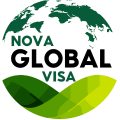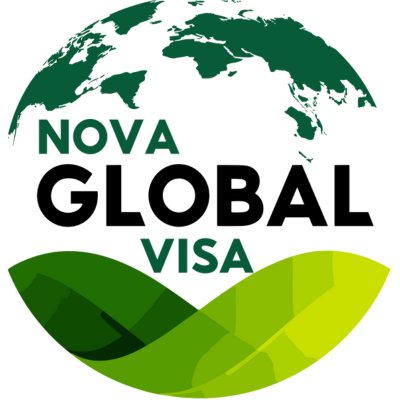WORK PERMIT CANADA
Registered migration agents – MARN 2318162
What is work permit Canada?
A work permit in Canada is a document that allows a foreign national to work in Canada temporarily. There are many different types of work permits available, each with its own eligibility requirements and application process.
Some of the most common types of work permits in Canada include:
Employer-specific work permit: This type of work permit is issued to foreign nationals who have been offered a job in Canada by a Canadian employer. The employer must first obtain a Labour Market Impact Assessment (LMIA) from Employment and Social Development Canada (ESDC) before they can hire a foreign worker.
Open work permit: This type of work permit allows the holder to work for any employer in Canada.
Post-Graduation Work Permit (PGWP): This type of work permit allows international students who have graduated from a Canadian DLI to work in Canada for up to three years.
Temporary Foreign Worker (TFW) program: This program allows Canadian employers to hire foreign workers to fill temporary labour shortages. There are many different types of TFW permits available, each with its own eligibility requirements.

What is LMIA Canada?
LMIA stands for “Labour Market Impact Assessment” and is a process in Canada to assess the impact of hiring foreign workers on the local job market. Employers apply for an LMIA to show they’ve tried hiring Canadians first. If approved, it lets them hire a foreign worker, who can then apply for a work permit. It ensures a balance between addressing labor shortages and protecting Canadian job opportunities.
Eligibility for Work Permit Canada

When applying for a work permit Canada, specific prerequisites must be fulfilled based on your location. However, irrespective of your application location or the type of work permit sought, you are required to:
- Demonstrate your intention to depart Canada upon the expiration of your work permit.
- Verify that you possess adequate funds to support yourself and your family throughout your Canadian stay and for your return after the work permit’s expiration.
- Abide by legal regulations and maintain a clean criminal record (a police statement might be requested).
- Not pose a threat to Canada’s security.
- Maintain good health and undergo a medical examination if deemed necessary.
- Ensure your prospective employer does not have a “not eligible” status in the list of non-compliant employers.
- Refrain from intending to work for an employer primarily involved in activities like striptease, pornography, escort services, or erotic massage.
- Furnish the immigration officer with any additional documents they may require to substantiate your eligibility for entry into the country.
Who is eligible for employment without needing a work permit?
Certain individuals in Canada are exempt from requiring a work permit to engage in employment. Some common examples of groups or situations that are generally exempt from needing a work permit include:
- Citizens and Permanent Residents: Canadian citizens and permanent residents do not need a work permit to work in Canada.
- Certain International Agreements: Individuals who fall under certain international agreements, such as the North American Free Trade Agreement (NAFTA) or the Comprehensive Economic and Trade Agreement (CETA), may be exempt from requiring a work permit for specific types of employment.
- Business Visitors: Individuals visiting Canada for business purposes, such as attending meetings, conferences, or negotiating contracts, may not need a work permit.
- Performing Artists and Athletes: Some performers and athletes may not require a work permit for short-term engagements or events.
- Emergency Service Providers: Foreign emergency service providers, such as firefighters or medical personnel assisting in emergencies, might be exempt from needing a work permit.
- Foreign Representatives: Individuals who are accredited representatives of foreign governments or international organizations may be exempt.
- Students: In some cases, international students in Canada may be allowed to work on or off-campus without a separate work permit.
- Charitable or Religious Workers: People engaged in charitable or religious work may not always need a work permit.
It’s important to note that while certain situations or categories may be exempt from requiring a work permit, there are often specific conditions and limitations attached to these exemptions. Each case is unique, and it’s advisable to consult the official website of Immigration, Refugees and Citizenship Canada (IRCC) or seek legal advice to determine whether a work permit is required in a particular circumstance.

Rights And Privileges As A Work Permit Holder

When you hold a work permit in Canada, you are entitled to certain rights and privileges, including:
- Employment Authorization: You have the legal right to work for the specific employer and in the specific job mentioned on your work permit.
- Labour Rights: You are protected by Canadian labor laws, which ensure fair wages, safe working conditions, and other employment-related rights.
- Access to Services: You can access public services such as healthcare and education, depending on the province or territory you reside in.
- Social Benefits: Depending on the circumstances, you may be eligible for certain social benefits, like employment insurance or certain government assistance programs.
- Temporary Residency: You are allowed to live in Canada temporarily for the duration mentioned on your work permit.
- Travel: In most cases, you can leave and re-enter Canada while your work permit is valid, as long as you have the necessary travel documents.
- Family Sponsorship: Depending on the type of work permit, you might be able to sponsor your family members to join you in Canada.
- Human Rights Protections: You are protected under Canadian human rights legislation, which prohibits discrimination and ensures equal treatment.
- Legal Recourse: If you face any issues with your employer or working conditions, you have the right to seek legal assistance and remedies.
It’s important to remember that the specific rights and conditions associated with your work permit can vary based on the type of work permit you hold, the terms and conditions specified on it, and any applicable Canadian laws and regulations.
Work permit Canada: How to apply?
To obtain a work permit in Canada, you generally need to follow these steps:
-
Job Offer: Secure a job offer from a Canadian employer. In most cases, the employer may need to obtain a Labour Market Impact Assessment (LMIA) from Employment and Social Development Canada (ESDC) to demonstrate that hiring a foreign worker will not negatively impact the Canadian job market.
- LMIA (if required): If an LMIA is required, your prospective employer will apply for it. Once approved, they will provide you with the necessary documentation.
- Apply for a Work Permit: With a job offer or LMIA, you can apply for a work permit from Immigration, Refugees and Citizenship Canada (IRCC). You can apply online or through a Visa Application Centre (VAC) in your country.
- Provide Supporting Documents: Along with your application, you will need to provide various documents, such as your job offer letter, LMIA (if applicable), passport, proof of qualifications, and any other requested information.
- Biometrics and Medical Examination: Depending on your country of residence and the type of work you’ll be doing, you might need to provide biometric information (fingerprints and photo) and undergo a medical examination.
- Wait for Processing: IRCC will review your application and may request additional information. Processing times can vary, so it’s important to check the current processing times for work permits.
- Receive Decision: Once your application is approved, you will receive a Port of Entry (POE) Letter of Introduction and, if required, a Temporary Resident Visa (TRV) or Electronic Travel Authorization (eTA), allowing you to travel to Canada.
- Arrival in Canada: When you arrive in Canada, a border services officer will determine if you’re eligible to enter and will issue your actual work permit.
It’s important to note that there are different types of work permits and eligibility criteria based on factors such as the type of job, your qualifications, and your country of origin. Some individuals may be exempt from requiring an LMIA or may be eligible for special programs. It’s advisable to review the official IRCC website or consult with a Canadian immigration professional to ensure you meet all the requirements and have the most up-to-date information before applying for a work permit.




 Nova Global Visa © Copyright 2022
Nova Global Visa © Copyright 2022